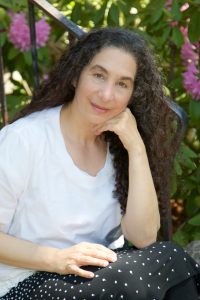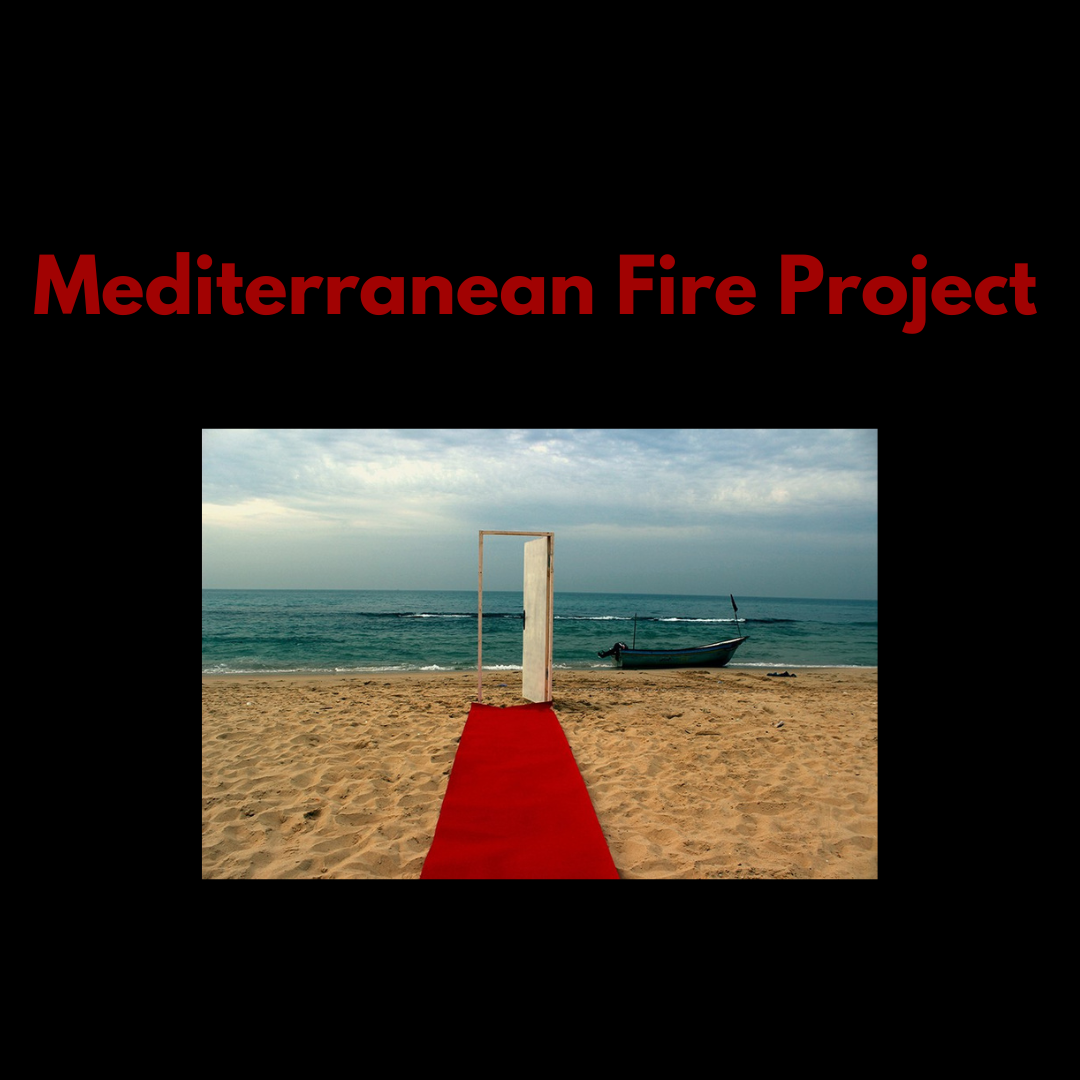These works were created in response to poetic texts written by Habibah Sheikh, a nomadic performance artist originally from Lebanon, and curator of the exhibition Mitli Mitlak (Like Me, Like You).
Every minute, 24 people around the world are forced to flee their homes. There are 65 million refugees in the world today. The crisis affects us all, regardless of location or legal status.
Many of the artists in the Mediterranean Fire Project are currently residents of occupied territories or refugee camps. They work collaboratively to tell stories we often hear secondhand; tales of exile, refuge, displacement, and war. Executed in a narrative style, the viewer can trace experiences of wandering and chaos through the canvases. Some works are rendered in a vibrantly celebratory pallet, almost jubilant, while others use imagery of violence. burning bodies, to evoke the emotional and physical vulnerability of being without asylum.
We are more alike than we are different, we are all human.
Learn more, see the full collection, and support the work at https://www.mediterraneanfire.com/
Mohammad Al Howajri (Palestine)
Selection from the Series, Red Carpet
Al Howrajri’s work is about the circumstances he lives in or particular incidents in which the people of Gaza are living given their daily fluctuating political, economic, and social conditions. These changes are reflected in his artwork.
Dressed up, in masquerade, they go by foot to the party, to a new beauty and elegance which was lost in the terrors and devastation of war and they look forward to dancing all night, like in the free and peaceful world. The Palestinians have a Red Carpet event, based on Howajri’s proposition for the project, as a way to resist occupation.
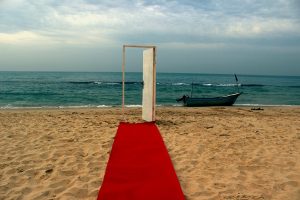
Thameur Mejri (Tunisia)
Selection from the Series, I will Bury My Love Around You
In Mejri’s work the body is haunted by energies to be identified. Each action has internal reverberations; each line is loaded, pulsing with a violence that springs out of an internal latent energy. Here, violence is not violence in itself. It stems from a very soft place which has been wounded.
In Mejri’s series, subjective beings and politicized bodies are in collisions and obstacles in intersections covering the canvas. Without objectivity, an extreme situation occurs. Deep meaning arises from the collision points, because of a fractal structure after the crash.
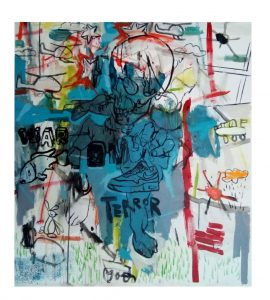
Wael Darweish (Egypt)
Selection from the Series, Slow Burning Without Feeling
“My work is concerned with the changing perceptions related to the continuous social metamorphosis that Egypt has experienced as an African, Arab, and Middle Eastern country. I explore issues of colonization and liberation and the contemporary constraints of time, diaspora, gender, and identity.”
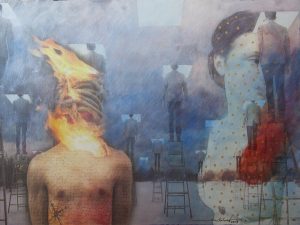
Basel Uraiqat (Jordan)
Selection from the Series, Refuge
This is Exodus from a physical point of view. “There is the feeling of weakness towards refugees, they are homeless. This artwork gives the imitation of falling and being on the periphery,” says Uraiqat. “I have this empathy that keeps building up. The important source is that it is a very bad situation for them. They are going through it during generations. Sometimes you think that it is their own fault… But they are stuck. You want to accommodate them and want them to be free. The feeling of falling apart is significant. They were in a certain dignified and educated status and something was pulled from under their feet. This free fall keeps them floating.”
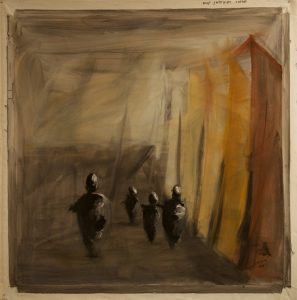
Qais Al Sindy (Iraq)
Selection from the Series, Leftover of Wars
In this exhibition, Qais Al Sindy’s work contains fallout from energy fields. His unique experiences from Iraq open possibilities for people to connect to each other and heal. This series is unlike most of his paintings which are typically dream-like and full of human connection. In this particular series, divisions become universally,“Non;” the inside and the outside, are one landscape.
“I see my artworks, in general, as revealing the shutter of the outside world, and helping people to feel and share what is going on in their lives, and what is impacting people in this world. I explore how people connect to each other across divides of belief, both political and spiritual. I hope my art will enable people to share their unique experiences, opening new avenues to consolidate concepts of peace, hope and love.”
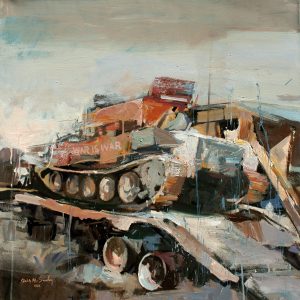
Habibah (Biba) Sheikh is the founder of Mediterranean Fire LLC. She is an author, curator, performer producer and director, who has worked in refugee camps to create meaningful connections through written and performative arts and storytelling. Her current projects, “Mitli Mitlak (Like You, Like Me)” and also “Right To Live”, as well as Seed to Cedar, present situations of forced migration in the Mediterranean. They have been supported by the Boggs Center (MI), Concert of Colors (MI), Riverwise magazine (MI), National Endowment for the Arts (USA), State of Wisconsin (WI), Born Global Foundation (ME), TransCultures Center for Sonic and Digital Arts (Brussels), Pépinières Européennes de Création (Paris), the N’Namdi Center for Contemporary Arts (MI), Central Michigan University Art Gallery (MI), and the Miller Museum (WI). 